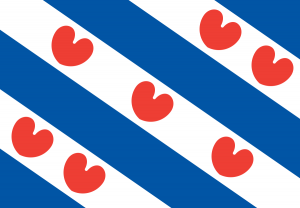Language/Western-frisian/Grammar/Gender
Hi Western Frisian learners! 😊
In this lesson, we will be discussing the gender rules of Western Frisian. We will look at how to identify the gender of nouns and how to use them in sentences. Let's get started!
Gender in Western Frisian
In Western Frisian, nouns are either masculine, feminine, or neuter. This means that when you use a noun in a sentence, you must also include the correct article (“de” for masculine, “it” for neuter, and “de” or “har” for feminine).
Masculine Nouns
Masculine nouns are usually easy to identify because they end in “-er” or “-en”. For example, the word “man” (man) is masculine and would be used with the article “de”.
Feminine Nouns
Feminine nouns are usually easy to identify because they end in “-e” or “-inne”. For example, the word “frou” (woman) is feminine and would be used with the article “de” or “har”.
Neuter Nouns
Neuter nouns are usually easy to identify because they end in “-te” or “-el”. For example, the word “hûs” (house) is neuter and would be used with the article “it”.
Examples
Here are some examples of nouns and their genders:
| Western Frisian | Pronunciation | English Translation |
|---|---|---|
| man | mɑn | man |
| frou | frɔu | woman |
| hûs | hys | house |
| bern | bɛrn | child |
| skoalle | skɔɑlə | school |
Practice
To improve your Western Frisian Grammar, you can also use the Polyglot Club website. Find native speakers and ask them any questions!
Quiz
Test your knowledge of Western Frisian gender rules with this quiz:
- What article do you use with a masculine noun?
- What article do you use with a feminine noun?
- What article do you use with a neuter noun?
- What is the gender of the word “man”?
- What is the gender of the word “frou”?
- What is the gender of the word “hûs”?
Answers:
- de
- de or har
- it
- masculine
- feminine
- neuter
➡ If you have any questions, please ask them in the comments section below.
➡ Feel free to edit this wiki page if you think it can be improved. 😎

